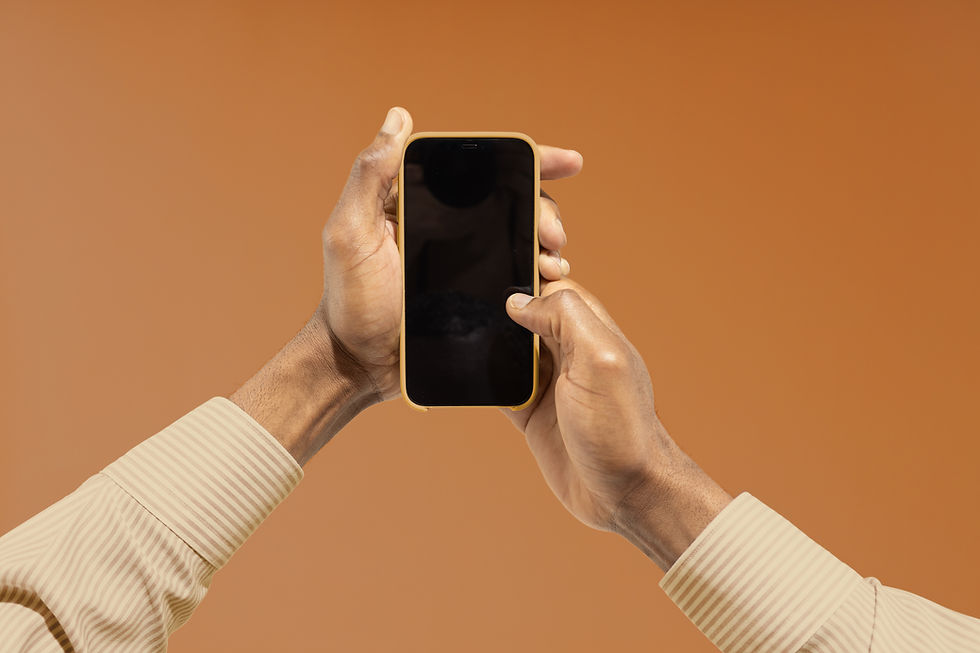Why Don’t Relationships Last Anymore?
- Jul 14, 2025
- 6 min read

There’s a question silently echoing through coffee shops, therapy sessions, and lonely bedrooms: Why don’t relationships last anymore?
We’re living in a time where love seems fleeting. Marriages are dissolving after 15–20 years. Trust is hard to find. People crave commitment, yet fear losing themselves. Even in relationships, many feel lonelier than ever.
This isn’t about “people giving up too easily.” It’s deeper than that. We need to understand what’s really happening beneath the surface because it’s not just about breakups, it’s about a collective emotional shift.
Why Relationships Don’t Last Anymore?
Let’s explore the real reasons why relationships don’t last anymore and how we can gently bring love back into a world that desperately needs it.
The Erosion of Trust in a Hyperconnected World

At the heart of many modern breakups lies one quiet emotion: mistrust. In a world where we’re constantly online, it’s become easier to communicate, but harder to trust.
A late-night like on a stranger’s post. A message from a past love. A partner distracted by their phone when you're pouring your heart out.
None of these alone breaks a relationship. But together, they create small emotional bruises, ones that, over time, feel like betrayal.
Why don’t relationships last anymore? Because trust, once intuitive, now requires constant reassurance. And most couples don’t have the emotional tools, or the time, to rebuild what’s quietly breaking.
What helps: Open conversations about digital boundaries. Learning to say, “This made me feel insecure, and I want to feel close to you again.”
2. The Tug-of-War Between Commitment and Personal Space
Today’s love stories are no longer about two becoming one.
They’re about two trying to stay together without losing themselves.
People want intimacy, but also independence. They want someone to come home to, but also space to grow individually. And when needs aren’t met on both ends, relationships start to feel suffocating or unstable.
Why is the relationship not working? Because we’ve not yet mastered the delicate balance between connection and personal space.
This paradox creates tension. One partner may need emotional closeness, while the other pulls away to protect their autonomy.
Neither is wrong—yet both feel unseen.
What helps: Learning each other’s attachment styles. Saying things like, “I love you, and I also need time to recharge” without guilt.
3. Silent Separation: When Long-Term Couples Drift Apart

It’s one of the most heartbreaking realities of modern relationships:
Couples who’ve spent 20+ years together suddenly part ways.
There was no big fight. No infidelity. Just slow emotional drifting.
Children grow. Careers evolve. However, couples often forget to evolve together. The relationship takes a back seat to life’s demands—and by the time they notice the gap, it feels too wide to bridge.
So, why don’t relationships last anymore, even after decades? Because love needs tending. And many long-term couples unintentionally stop watering the roots of their connection.
What helps: Regular emotional check-ins. Asking, “What’s something you miss about us?” or “What kind of connection are we craving right now?”
4. The Loneliness Epidemic Inside Relationships
Being single and lonely is one thing. But being in a relationship and lonely is perhaps more painful.
You share a home, a bed, a routine, but you don’t share your inner world anymore.
And that emotional isolation breeds anxiety, self-doubt, and silent resentment.
So, how a relationship is affected due to loneliness? Because people stop feeling emotionally safe within them. They begin to guard rather than open up. And love, when it’s no longer a refuge, becomes something we want to escape from.
What helps: Creating space for expression, without interruption or defensiveness. Saying, “I feel alone, and I need us to reconnect. Can we talk, even if it’s messy?”
5. Modern Relationships Face Too Many Competing Priorities
Let’s be honest. We’re overwhelmed.
Between work pressure, mental health struggles, family obligations, and personal goals, it’s easy for relationships to become just another responsibility.
And when that happens, we lose the joy, spontaneity, and emotional intimacy that keep love alive.
How do priorities affect relationships? Because they’re being crowded out. Not by other people, but by everything else that demands our time and attention.
What helps: Intentionally making space. Scheduling joy. Prioritising connection not just when it’s convenient, but when it’s most needed.
So, What Can We Do Differently to make a Relationship last?

When relationships begin to feel fragile or distant, it’s tempting to withdraw, or worse, to give up altogether. But that very moment of emotional discomfort is where change becomes possible.
To love differently today means learning to love more intentionally. Let’s gently unpack how.
1. Prioritise Emotional Safety Over Perfection
Many couples wait for the “right moment” to talk about difficult feelings, but that moment rarely comes. And the longer we wait, the deeper the gap becomes.
Emotional safety isn’t about never hurting each other. It’s about creating a space where both people feel free to be vulnerable without fear of judgment or punishment. That means being able to say things like:
“I don’t feel close to you lately. Can we talk?”
“I’m afraid of losing us.”
“I’m not sure how to express myself, but I want to try.”
We’re often taught to prioritise being strong, rational, or “right” in relationships. But emotional safety grows when we soften, listen, and respond with empathy instead of ego.
Whisper to Self: “Can I be a soft place to land for the person I love—even when things are hard?”
2. Take Digital Detoxes Together

We scroll more than we speak. We react more than we reflect.
In a world where phones are constant companions, disconnection from devices is the first step toward reconnecting with one another.
Try something as simple as:
A “no-phone dinner” rule for every night.
Designating Sundays as “slow days” for each other, with walks, long talks, or cooking together.
Putting devices away 30 minutes before bed and talking instead.
These small, conscious efforts create micro-moments of intimacy—glimpses of each other that often get lost in the digital noise.
Remember: You don’t need to escape to a retreat to reconnect. You can build a mini-retreat every evening—right at home.
3. Replace Blame with Curiosity
Blame sounds like:
“You always ignore me when I talk.”
Curiosity sounds like:
“I feel hurt when it feels like you aren't listening when I speak. Can we figure this out together?”
This shift may seem subtle, but it’s revolutionary in how it transforms conflict.
When we lead with curiosity, we give our partner the benefit of the doubt. We show up as investigators, not prosecutors. This makes space for deeper conversations, emotional understanding, and the kind of connection that thrives even during difficult times.
Try this: Before your next emotional reaction, pause and ask yourself, “What am I really feeling—and what might they be feeling too?”
4. Revisit the Relationship—Year After Year

Love doesn’t remain the same. And neither do we.
We evolve. We get hurt. We grow. We rediscover ourselves. The relationship that worked five years ago may not fit the shape of who you both are now.
But that doesn’t mean it’s broken—it just means it needs a loving realignment.
Set a “relationship check-in” date every few months.
Ask each other: “What do you need more of from me right now?”
Celebrate what’s working, grieve what’s been lost, and gently plant new seeds.
These rituals of reflection can revive emotional intimacy and remind both partners that love is not a static commitment, but a living, breathing dance.
5. Make Healing Spaces a Shared Practice
Emotional healing is often seen as a solo journey. But when done in partnership, it becomes a shared act of grace.
That could look like:
Attending therapy or couples counselling together.
Exploring a sound bath or breathwork session to release emotional tension.
Creating art, writing poetry, or listening to healing music as a shared ritual.
At Lovely Tiny Things, we’re reimagining what healing can look like for couples, individuals, and anyone navigating the complexities of modern love.
Whether you’re in a fragile relationship or simply seeking a deeper connection, we invite you to explore our workshops/webinars.
Conclusion: How to make a Relationship healthy and lasting?
Love today is not easy—but it’s not impossible.
It just asks more of us than ever before.
It asks us to be aware. To communicate. To unlearn. To listen. And to show up—over and over again—even when things feel tough.
Share Your Thoughts on Relationship
Have you ever found yourself silently asking:
“Why don’t relationships last anymore?”
What did you discover about yourself or your partner in that process?
We’d love to hear your story. Share your thoughts in the comments, or tag us on Instagram @samidha_mathur with your reflections.
















Comments